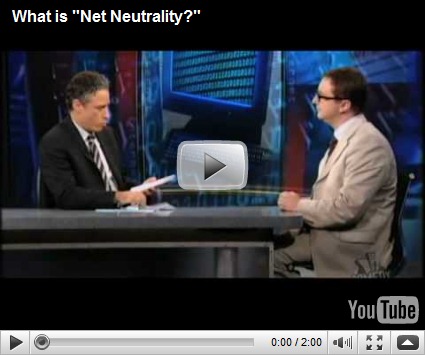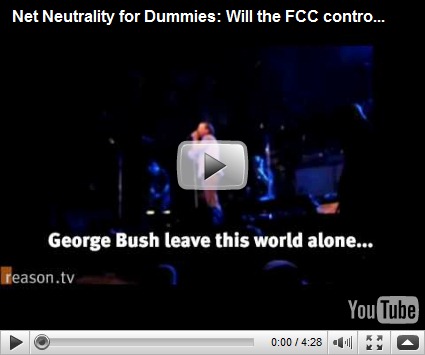Federal Appeals Court rejects FCC’s bid to enforce Net Neutrality
Yesterday, a federal appeals court ruled that Internet traffic regulators like the FCC had limited power over web traffic under current law. The court decision was a setback to efforts by the Federal Communications Commission to require companies to give Web users equal access to all content, even if some of that content is clogging the network. The court ruling, which came after Comcast asserted that it had the right to slow its cable customers’ access to a file-sharing service called BitTorrent, could prompt efforts in Congress to change the law in order to give the FCC explicit authority to regulate Internet service.
Confused about Net Neutrality? Here’s a video taking the “for” side on Net Neutrality – what it is and why it is important:
Sounds reasonable. Reason has its own video up taking the position against Net Neutrality, you can watch it below:
To summarize the arguments:
Today, everyone has equal access to everything on the Internet; this freedom of information needs to be preserved and protected by government if necessary.
Internet broadband providers like Verizon and AT&T will slow down connections to rival websites and make users pay them more money if they want better access. If you want to visit their preferred sites, let’s say Verizon and Google strike a deal, you can visit Google’s sites a lot faster if Verizon is your broadband provider. This means that various vendors can get together and monopolize the Internet and strongly influence users to their own sites. This lies at the very heart of freedom of information – it’s not free if someone can influence it.
However, there isn’t any evidence of this actually occurring in real life. Broadband providers like Comcast and AT&T say that this doesn’t occur in real life and they need the ability to shape traffic in order to maximize the user experience. They aren’t interested in shaping traffic to cut deals with large corporations, they are interested in maximizing their investment. For example, if they take on the risk of building fatter pipes, then if someone wants to pay more to access those fat pipes then they should be allowed to do so. In addition, traffic like bit torrents clog the pipes and Comcast needs to be able to throttle those connections because if they don’t everyone suffers.
In my opinion, companies that have something to gain by Net Neutrality tend to come out for net neutrality. For example, Google’s services all run on the Internet. So do Skye’s. So does eBay. If all traffic is treated equally, then a software company only needs to build the application. They take on none of the risk of building the infrastructure and secure all of the benefits. They can piggy-back on someone else’s work; simply wait for the Internet to get faster and without having to do anything, their services run better. Companies that bear the brunt of net neutrality, such as an ISP, will be against it because they assume the cost of building out more infrastructure but cannot charge anymore for it. It’s kind of like building a higher model luxury vehicle but having to charge the same amount for it.
That’s my summary in a nutshell. From an end-user perspective, it’s all about freedom. From a corporation’s perspective, it’s all about the money.

